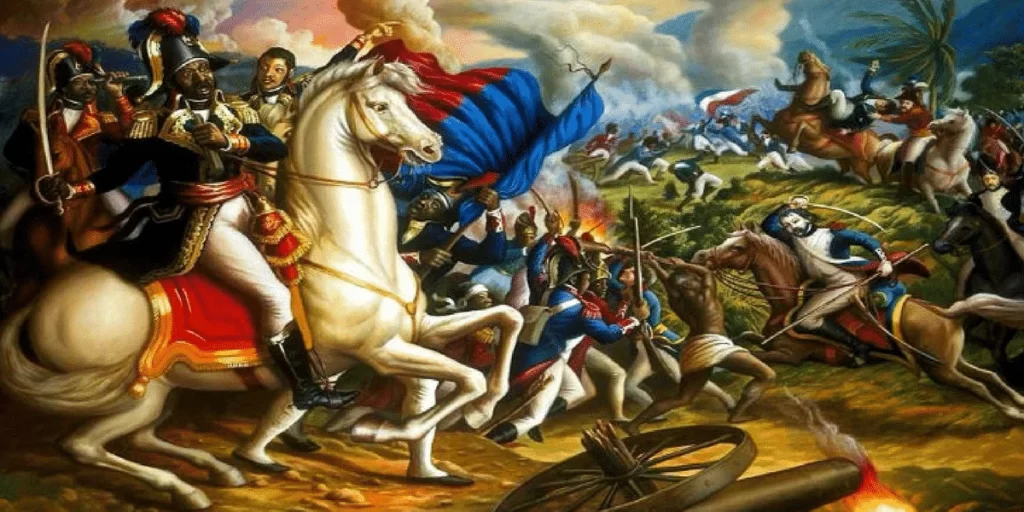On November 18, 1803, the Battle of Vertières marked a pivotal moment not only in Haitian history but also in the broader global struggle against colonialism and slavery. This decisive battle was the final conflict of the Haitian Revolution, in which enslaved Africans and free people of color rose against French colonial forces, culminating in Haiti’s declaration of independence on January 1, 1804.
The Context of the Battle
The Haitian Revolution, which began in 1791, was the world’s only successful slave revolt, aimed at abolishing slavery and colonial rule. By 1803, the revolutionary forces, led by General Jean-Jacques Dessalines, had gained significant ground against Napoleon Bonaparte’s troops, who sought to reassert French control over the colony of Saint-Domingue (now Haiti).
The stakes were immense. Saint-Domingue was France’s most lucrative colony, a major producer of sugar and coffee. Losing it would be a significant economic and strategic blow to France’s ambitions. For the enslaved population and their allies, victory meant freedom and the establishment of a sovereign nation.
The Battle of Vertières
Vertières, located near Cap-Haïtien in northern Haiti, became the stage for this historic clash. On the morning of November 18, Dessalines and his generals, including François Capois (Capois-La-Mort), led a determined assault against the French army, commanded by General Rochambeau.
Capois, in particular, became legendary during the battle. Despite heavy artillery fire, he rallied his troops with unwavering courage. As bullets rained down, his horse was killed beneath him, but Capois rose, drew his sword, and pressed forward, shouting, “Forward, forward!” His bravery inspired the Haitian forces to maintain their momentum.
By the end of the day, the French troops were overwhelmed. With their morale shattered and their numbers dwindling due to battle losses and disease, Rochambeau’s forces capitulated. This victory effectively ended Napoleon’s aspirations to maintain an empire in the Americas.
The Aftermath and Haiti’s Independence
The triumph at Vertières forced the French to abandon Saint-Domingue. Just over a month later, on January 1, 1804, Dessalines declared the independence of Haiti, making it the first free Black republic in the world and the second independent nation in the Americas, after the United States.
The Battle of Vertières remains a symbol of resilience and the fight for human dignity. Haiti’s victory inspired enslaved people across the Americas and challenged global powers that depended on the institution of slavery.
Legacy and Commemoration
Every November 18, Haitians honor the Battle of Vertières as a national holiday, celebrating the courage and sacrifice of those who fought for freedom. The battle is not just a Haitian story—it’s a testament to the universal struggle for liberty and justice.
In the face of ongoing challenges, the spirit of Vertières reminds Haitians of their ancestors’ extraordinary achievement: a victory that reshaped history and proved that even the most oppressive systems could be overthrown by the will of a united people.
Vertières Today
The legacy of Vertières serves as a source of pride and a rallying cry for Haitians to uphold the ideals of independence and resistance. As Haiti continues to navigate its complex political and social landscape, the memory of this historic victory offers a powerful reminder of the nation’s potential for resilience and triumph against adversity.

